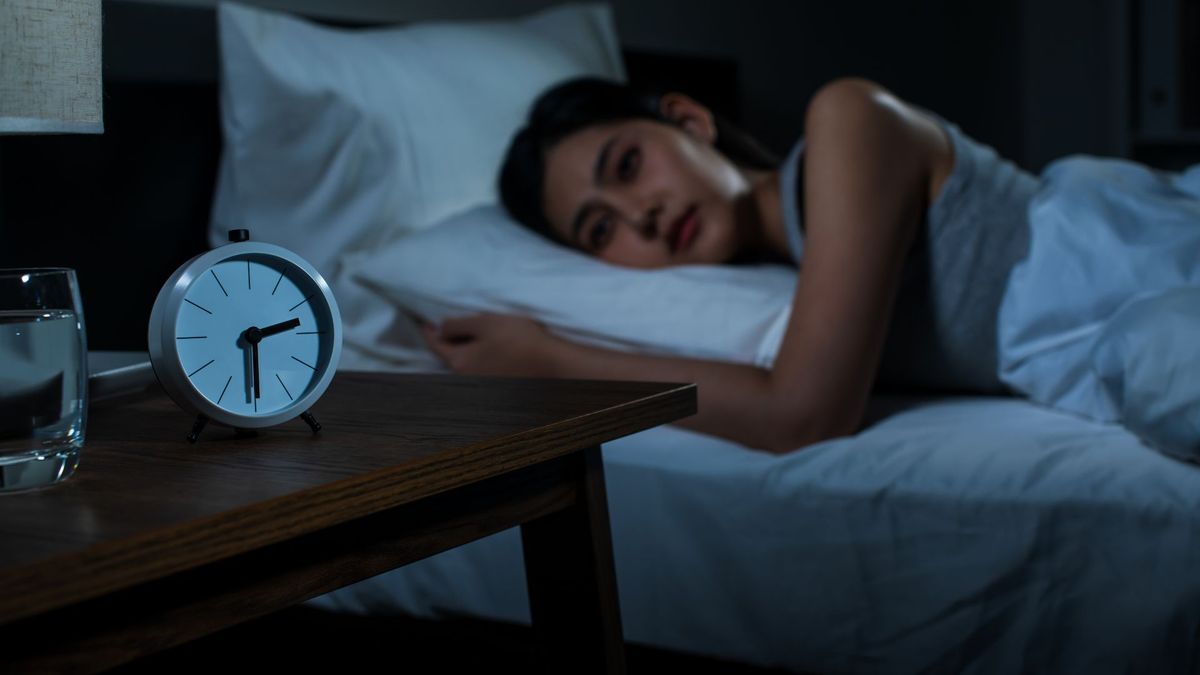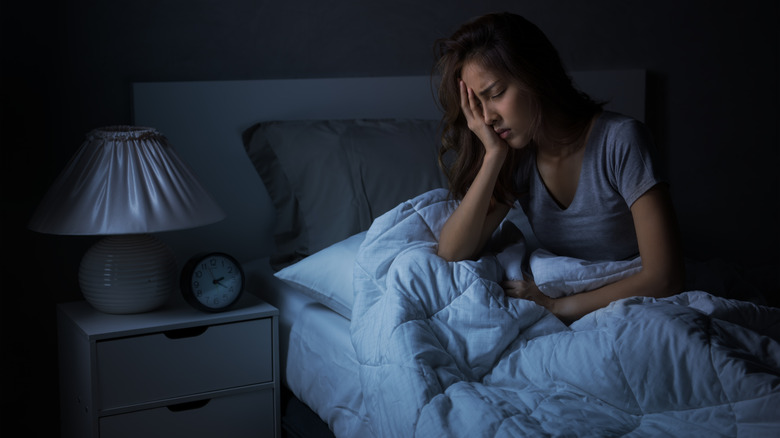Waking Up Between 3 am and 5 am? Here’s What It Means
Do you always sleep through the night without problems? Or, are you like much of the population and find yourself waking up at 3 am, unable to fall back asleep? If you’re part of the second group, it’s important to figure out what may be causing you to wake up and, most importantly, how to prevent it from continuing. This is what your sleepless nights mean and how to finally get the rest you need.
Why You Keep Waking Up At 3 am

First, it’s important to note that waking up at night is normal. In fact, most of us do it a handful of times throughout the night, but we fall asleep so quickly we don’t even notice. This is because we sleep in cycles. In one sleep cycle, we transition from wakefulness to sleep, light sleep, deep sleep, and REM sleep. REM stands for rapid eye movement and is the part of the sleep cycle where we will have the most dreams. Typically we have longer deep sleep cycles earlier in the night and longer REM cycles the closer we get to morning. (1)
When you wake up at 3 am, however, and can’t get back to sleep, this is problematic. Though it can be challenging to identify why you might be waking up, it’s important to try so that you can bring an end to this nighttime wakefulness. These are the reasons why you might be waking up, unable to sleep, in the middle of the night.
Did you know that waking up at 3 or 4 in the morning is a clear sign of…see more

Waking up in the middle of the night, particularly around 3 or 4 a.m., is something many people experience from time to time. If you’ve found yourself waking up during these early hours, it could be due to various reasons. Understanding these causes can help you determine what might be affecting your sleep. Below, we explore some common reasons why you may be waking up at 3 or 4 a.m., along with potential solutions to improve your sleep quality.
1. Stress and Anxiety
One of the most common reasons for waking up in the early morning is stress and anxiety. When you’re feeling overwhelmed, your mind tends to race, and this can interfere with your ability to fall and stay asleep. If your thoughts are preoccupied with worries or unresolved issues, it’s not unusual to wake up in the middle of the night. Often, this is accompanied by difficulty falling back asleep, making it even more challenging to get a full night of rest.
What to Do: Practicing relaxation techniques, such as deep breathing, meditation, or progressive muscle relaxation, before bed can help ease anxiety. Additionally, managing stress through regular exercise and engaging in hobbies or activities you enjoy can reduce the likelihood of nighttime awakenings.

2. Sleep Disorders
Conditions like insomnia and sleep apnea are common causes of waking up at 3 or 4 a.m. Insomnia is characterized by difficulty falling or staying asleep, while sleep apnea involves pauses in breathing during sleep, which can lead to abrupt awakenings. Both conditions disrupt your sleep cycle and can leave you feeling unrested.
What to Do: If you suspect you might have insomnia or sleep apnea, it’s important to speak with a healthcare professional for proper diagnosis and treatment. A healthcare provider may suggest cognitive behavioral therapy (CBT) for insomnia or recommend lifestyle changes or devices like CPAP machines for sleep apnea.
3. Hormonal Changes
Hormonal fluctuations can significantly affect sleep patterns, particularly in women. Hormones play a vital role in regulating sleep, and changes due to menopause or pregnancy can lead to waking up during the night. Hot flashes, night sweats, or hormonal imbalances can also contribute to disrupted sleep.
What to Do: If you’re experiencing sleep disturbances due to hormonal changes, consulting a healthcare provider can help. They may recommend hormone therapy, lifestyle changes, or dietary adjustments to help manage symptoms and improve sleep quality.

4. Lifestyle Factors
Certain lifestyle choices can negatively impact sleep quality, leading to early morning awakenings. For example, consuming caffeine or alcohol close to bedtime can disrupt your sleep cycle. Additionally, irregular sleep schedules—like staying up late one night and waking up early the next—can confuse your body’s internal clock.
What to Do: To improve sleep, aim for a consistent sleep schedule, avoid stimulants like caffeine and alcohol at least a few hours before bedtime, and create a relaxing pre-sleep routine to help signal to your body that it’s time to wind down.